PENICILLIN G BENZATHINE - INJECTION
PHONETIC PRONUNCIATION: (PEN-i-SIL-in BEN-za-theen)
COMMON BRAND NAME(S): Bicillin L-A
GENERIC NAME(S): penicillin G benzathine
Uses
USES: Penicillin G benzathine is used to treat a wide variety of bacterial infections. It may also be used to prevent certain bacterial infections (such as rheumatic fever). This medication is a long-acting penicillin antibiotic. It works by stopping the growth of bacteria.
How to use PENICILLIN G BENZATHINE - INJECTION
HOW TO USE: This medication is given by injection into a large muscle as directed by your doctor. The dosage is based on your medical condition and response to treatment. For children, the dosage is also based on age and weight. If you are using this medication at home, learn all preparation and usage instructions from your health care professional. Do not inject into or near an artery, nerve, or vein. See also Warning section. Change the injection site each time to lessen injury to the muscle. Before using, check this product visually for particles or discoloration. If either is present, do not use the liquid. Learn how to store and discard medical supplies safely. For the best effect, follow your doctor's directions for when to receive this antibiotic, and make sure to not miss any doses. Continue to receive this medication for the full time prescribed, even if symptoms disappear after a few days. Stopping the medication too early may result in a return of the infection. Tell your doctor if your condition lasts or gets worse.
Side Effects
Precautions
Interactions
Overdose
Images
Reviews
Faq for PENICILLIN G BENZATHINE - INJECTION
Penicillin G benzathine injection is used to treat certain bacterial infections, such as strep throat, syphilis, and rheumatic fever.
Penicillin G benzathine works by killing the bacteria causing the infection. It belongs to a class of drugs called penicillin antibiotics.
Penicillin G benzathine is administered by a healthcare professional as an intramuscular injection into a large muscle, usually in the buttocks or upper arm.
Common side effects of penicillin G benzathine injection include pain at the injection site, swelling, redness, and irritation. Some individuals may also experience allergic reactions.
The frequency of penicillin G benzathine injections varies depending on the specific infection being treated. Your healthcare provider will determine the appropriate dosing schedule for you.
Penicillin G benzathine is generally considered safe for use during pregnancy. However, it is important to consult with your healthcare provider before starting any medication during pregnancy.
Penicillin G benzathine injection can be used in children for certain bacterial infections. The dosage will be adjusted based on the child's weight and age. You should always consult with a pediatrician before administering any medication to a child.
Penicillin G benzathine may interact with certain medications, such as oral contraceptives or blood thinners. It is important to inform your healthcare provider about all the medications you are taking to avoid any potential interactions.
If you miss a scheduled dose, contact your healthcare provider as soon as possible. They will advise you on whether an additional dose is necessary or if you should continue with the regular dosing schedule.
Warning
WARNING: This medication must not be injected into a vein or mixed with solutions that will be injected into a vein because serious (possibly fatal) side effects can occur.
Disclaimer
IMPORTANT: HOW TO USE THIS INFORMATION: This is a summary and does NOT have all possible information about this product. This information does not assure that this product is safe, effective, or appropriate for you. This information is not individual medical advice and does not substitute for the advice of your health care professional. Always ask your health care professional for complete information about this product and your specific health needs.

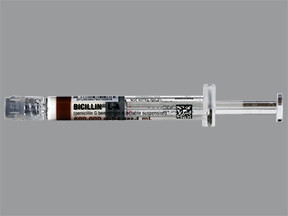
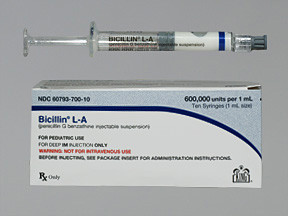
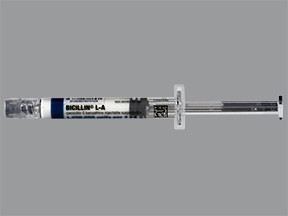
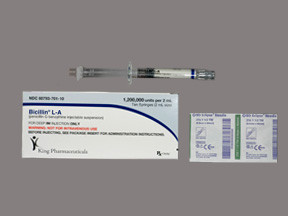
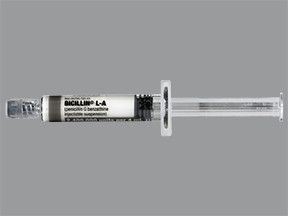
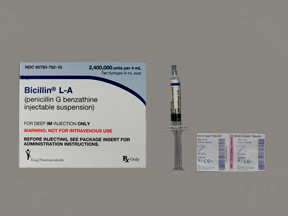
No Reviews Yet